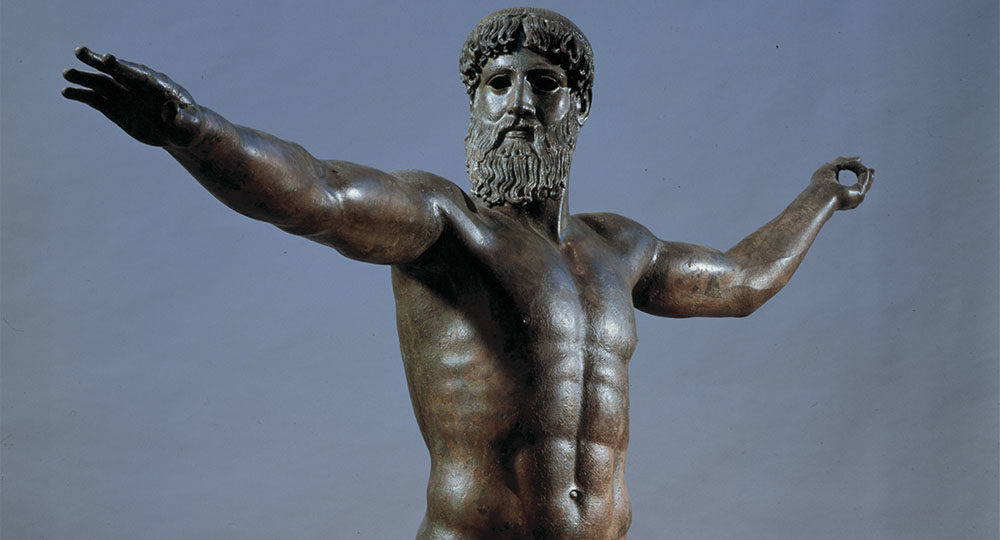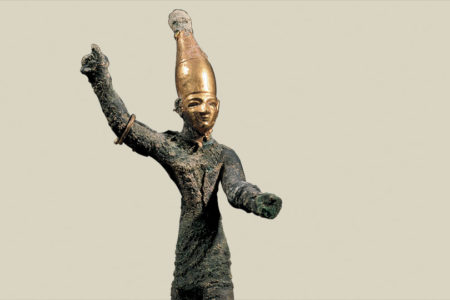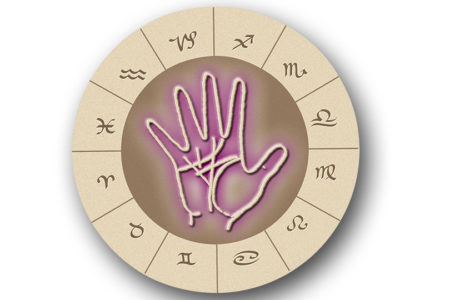Early Christians in A Pagan World
Recently, my daily newspaper began a weekend feature page on religious events in the community, including an interfaith calendar detailing the religious holidays for the coming week for the various faiths. The faiths represented on the calendar include the monotheistic religions—Christianity, Judaism, and Islam—as well as eastern religions—Buddhism, Hinduism, Sikh, and Baha’i. But it also refers to a religion as “Earth based,” which worships on certain days at certain times of the year following a celestial calendar, as well as on other special days. “Earth based” is a generic modern term for what we traditionally have called “paganism”—religions that worship the creation and the forces in it. While paganism was repressed for many centuries in Christian societies, it is now back as a protected religion in our pluralistic religious world. How do we, as Christians, deal with pagans and paganism? The answer is found in the pages of the New Testament, where the early Christians lived in the midst of a pagan world. This article examines a few instances from the New Testament and first century history to see how Christians approached and battled paganism in the Roman Empire.
Paul’s Experiences with Paganism
Early Christians and Jews shared a belief in the one true God, as opposed to Roman paganism. Therefore, in the first few decades of the church, Christianity was considered a sect of Judaism because, like the Jews, they were monotheists. In this regard, Christian missionaries first had to proclaim to the pagan world the concept of monotheism before they could proceed to the gospel. This is clearly seen in Paul’s missionary preaching to pagan audiences. When Paul and Barnabas visited Lystra, a pagan town (Acts 14:8–18), Paul healed a cripple. The people then began to worship him and Barnabas as the incarnations of the Greek gods Hermes and Zeus and wanted to offer sacrifices to them. Paul declared that he and Barnabas were not gods and that the people should worship the one true God. He explained that God had been providing the rains and seasons all these years, yet they had falsely attributed them to their pagan gods and worshiped them. Paul proclaimed that there is one true God who is apart from creation and to whom all people are responsible which is essentially the Judeo Christian world view—and that He was willing to forgive them of their past ignorance.
On Paul’s second journey, he went to Athens, the Greek philosophical center, where he encountered intellectual pagans (Acts 17:16–34). Paul was grieved because he saw that the city was full of idols. After teaching in the marketplace, he was given the opportunity to explain his teaching before the Areopagus, the council that determined who could teach in Athens. Paul preached a marvelous sermon, even quoting pagan writers, to move the Athenians from their view of god (Zeus) to a knowledge of the one true God. In conclusion, Paul spoke of the judgment of the world by one who was raised from the dead, and at this point his audience scoffed. The idea of the resurrection caused a stir because Greek philosophical thinking was dualistic; it taught that the spirit world was better than the physical world. In dualistic thinking, why would anyone want to be resurrected? This is counter to the Judeo Christian belief that the physical world was created good, and that God intends believers to live forever in real bodies (albeit glorified). As a result of this philosophical skepticism, there were few converts in Athens.
During Paul’s third missionary journey, he spent two years teaching in Ephesus (Acts 19:8–41). Ephesus was a pagan city centered around the worship of Diana (or Artemis), the earth goddess, whose temple was considered one of the seven wonders of the world. After hearing the gospel, those saved out of the occult burned their magic books (which would be valued today at about $5,000,000). This turning from pagan worship hurt the Ephesian economy so much that the silversmiths, who would have made the idols and tools of pagan worship, staged a riot against Paul and the Christians.
A number of lessons can be learned from these accounts. First, the preaching of essential truths of the Judeo-Christian worldview is the basis for pagans to receive the gospel. Second, in battling paganism, the Lord is able to save those who are bound in Satan’s grip through the power of the gospel. Many pagans are bound to Satan by fear and lies. They need to hear the truth and experience God’s liberating power. Third, when people are converted out of paganism in great numbers, we should expect opposition to arise from society because of financial loss, not because of the issue of truth.
Christianity in the Late First and Early Second Centuries
The first persecution of Christians by Rome occurred during the reign of Nero (54–68 A.D.). To divert suspicions that he had a fire started to destroy a district in Rome where he wanted to build, Nero blamed “a class hated for their abominations,” the Christians (Tacitus, Annuls, xv.44). The Romans had believed much misinformation about Christians. The Roman public considered the Christians’ worship of the unseen God as atheism, and the Lord’s Supper (the Love Feast) was thought to consist of cannibalism and sexual orgies. The Romans also considered Christians anti-social because they stopped participating in community pagan feasts and attending the theater, where sacrifices were made to the gods. Many Christians died during Nero’s persecution, including Peter and Paul. It did, however, give believers an opportunity to testify concerning their faith. Tacitus wrote that Nero’s cruelty led to a feeling of pity for Christians because the Romans viewed this persecution as more Nero’s personal vendetta than anything the Christians had done wrong. As a result of Nero’s persecution, Christianity was recognized as a religion distinct from Judaism, although still a sect of Judaism. Unlike Judaism, however, Christianity was considered a cult and was not sanctioned by the empire.
While even Augustus Caesar was called “The Son of God” by some in his empire, Augustus and the other sane emperors in the first century did not directly claim divinity for themselves. Rome still considered itself to be the remnant of a Republic and did not want to be ruled by a tyrant. This did not preclude Emperor Domition (81–96 A.D.), however, from referring to himself as “Lord God” and demanding veneration. While his subjects grudgingly complied, Jews and Christians could not comply. Domition taxed the Jews harshly, and Christians, when found, were exiled or executed. It is probable the Apostle John was exiled to the island of Patmos during this time (Rev. 1:9). Eventually, Domition’s own political rivals assassinated him.
A more revealing picture of the attitude of the Roman Empire toward Christianity during this time is found in letters of Pliny the Younger, the Proconsul of Bithynia and Pontus (111–112 A.D.), to Emperor Trajan concerning the judiciary aspects of handling Christians and the emperor’s response. Pliny asked for advice concerning lists of supposed Christians being given to the authorities so that those named might be arrested. Pliny first detailed how he was presently handling the situation and then asked for Trajan’s opinion. Pliny’s practice was to ask people so charged whether or not they were Christians. If they replied in the affirmative, after the threat of capital punishment, they were sentenced to death, unless they were Roman citizens, in which case they were sent to Rome for trial. This affirms that simply being a Christian was understood as an offense to the empire and was a crime worthy of death.
Pliny went on to describe how he dealt with those who were named as Christians and then recanted their faith. The test of Christianity was not only to worship the emperor, but to curse Christ. Pliny wrote, “All who denied that they were or had been Christians I considered should be discharged, because they called upon the gods at my dictation and did reverence, with incense and wine, to your image which I had ordered to be brought forward for this purpose, together with the statues of the deities; and especially because they cursed Christ, a thing which, it is said, genuine Christians cannot be induced to do.”
After further investigation, Pliny found that all the Christians were doing was meeting in fields together, singing hymns to Christ, and binding themselves together to do good. Even though the Christians were committing no crime, Pliny punished them for belonging to a secret society, which was outlawed. Pliny also observed that the pagan temples “which have been almost deserted” due to the influence of Christianity were beginning to be frequented again.
Trajan responded that Pliny was basically doing well because there was no “fast rule” that could be applied to Christians. He suggested that Christians were not to be hunted like criminals, but if they were found, they should be punished, unless they recanted by worshiping the gods. He also advised Pliny not to pay attention to anonymous lists of Christians because they would probably implicate many good pagans.
We learn from these letters that the Roman rulers were essentially ignorant of the practice and beliefs of Christians, other than that it was a “foreign superstition” and viewed as a secret society, which was suspect. We also learn the situation of Christians at that time. If they held fast to Christ and refused to worship the pagan gods and the emperor, they were executed for no reason other than refusal to comply with the dictates of the empire. This attitude continued largely unchanged for the next two hundred years, until a Christian named Constantine became emperor and proclaimed that Christianity would be the primary religion of the empire.
Summary
Our post-Christian, Western society appears to be headed toward a pagan religious outlook—if we are not there already. Many pagan groups are claiming that the world needs to return to the pagan religious worldview that was present before Christianity, and then the “New Age” of spiritual enlightenment will come. This refers to paganism as practiced in the Roman Empire. It does not mean that everyone has to be pagan but that there are many equally valid ways to come to God, and people can worship as they want. Just as in the first century, Christians today and in the future will not incur the wrath of society simply by worshiping Jesus, but by proclaiming that He is the only God and the only way of salvation and refusing to be part of the general pagan culture. In this way, Christians will have to again learn to be anti-social—not in the sense of hating pagans, but in the sense of being committed to worshiping the only true God, no matter what the cost. The Book of the Revelation pictures a time during the Tribulation when the entire world will come under a Roman-type empire in which the emperor will demand that everyone worship him as God. As a result, many saints will be killed for refusing to bow the knee to anyone but the one true God, just as in John’s day.
So how do we, as Christians, react to paganism in our society? First, we must clearly understand the teaching of Scripture so that we are not led astray or do not mix any aspects of paganism with our faith. This does not mean that Christians should avoid contact with pagans for, as Paul said, then we would have to leave the world (1 Cor. 5:10). The challenge for believers is to be in the world but not of it (John 17:14–17). Second, we must, in love, proclaim the gospel—which is the power of God for salvation—to free those trapped in bondage to Satan. Paganism shows no love or grace, and pagans will not experience these godly characteristics unless they come in contact with believers who exhibit them. Third, Christians must be willing to suffer for their faith. As our world becomes more pagan, true believers will be marginalized and out of step with society. While this may seem like a negative development, we should not forget that it was in the context of a pagan society that Christians in the first century, through the power of the Holy Spirit, evangelized the entire Roman Empire within two generations. Jesus said, “I will build my church, and the gates of Hades shall not prevail against it” (Mt. 16:18).








Interesting article, but some points on resurrection.
1) Reading the text In your second paragraph one would get the idea that Christians thought of Earthly resurrection home only. So comparison with pagans thought would be off to what we see.
2) The lord of the underworld was not seen as a benevolent being so how is it that you write they would rather be there? Have never seen that in historical writings in past 50 years (as an adult) I have been a Christian.
Well paganism must all be up rooted out of the church that goes for pagan holidays idolatry the change of Yahuah Laws the Sabbath other man made traditions like denomination and all the other foolishness thats going on in the church.